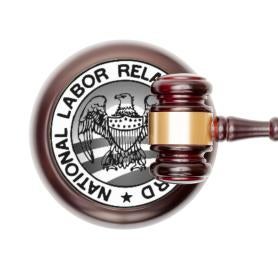“Absent threats or promises, § 8(c) [of the National Labor Relations Act] unambiguously protects ‘any views, argument or opinion’ – even those that the agency finds misguided, flimsy, or daft,” the D.C. Circuit has held. Trinity Services Group, Inc. v. NLRB, No. 20-1014 (D.C. Cir. June 1, 2021)
The Court was asked to “decide whether employers are entitled to express opinions that the [National Labor Relations] Board considers baseless” under the National Labor Relations Act (NLRA). Known as its free-speech provision, Section 8(c) of the NLRA provides: “The expressing of any views, argument, or opinion, or the dissemination thereof, whether in written, printed, graphic, or visual form, shall not constitute or be evidence of an unfair labor practice …, if such expression contains no threat of reprisal or force or promise of benefit.”
In Trinity Services Group, Inc., 368 NLRB No. 115 (2019), a Board panel majority (Members Lauren McFerran and Marvin Kaplan) held a manager’s “patently false” statement blaming the union for confusion over an employee’s paid time off (PTO) bank violated Section 8(a)(1). Then-Chairman John Ring dissented, reasoning the challenged “remarks were a lawful expression of his personal opinion, protected by Section 8(c).” The D.C. Circuit agreed with the Chairman Ring.
The employer maintains a standard PTO plan for its facilities across the country, except for a unionized facility in Arizona. The company’s centralized payroll processing sometimes caused confusion, indicating a union employee had PTO to use, but the local management believed they did not. In this a case, an employee requested three days of PTO, which the central payroll system indicated she had. However, the local manager disagreed. He told her she did not have any PTO available, saying “that is a problem that the Union created regarding paid leave”; “You need to fix that with the Union”; and “that’s the problem with the Union.” Ultimately, the employer gave the employee one day of PTO. This conversation arose while a successor contract was being negotiated. There was a tentative agreement to align the PTO plan with the non-union plan, but no overall agreement had been reached. There were also several open grievances challenging the employer’s PTO calculations.
The Board panel majority held the manager’s statements violated the NLRA. They reasoned these “statements were patently false …. There was no objective basis to blame the Union” for its PTO calculations. Giving significant weight to the context of contract negotiations and outstanding grievances, the Board found this “misrepresentation … would undermine the Union’s status as bargaining representative and reasonably tend to cause an employee to lose faith in the Union’s representation on the PTO issue.”
The D.C. Circuit noted the NLRA does not contain “this misstatement rule” and that no NLRB precedent had created it. Accordingly, it found substantial evidence did not support a finding these statements of opinion violated the NLRA. The Court ended its decision recognizing that it is up to Congress to change the NLRA in such a fashion, expressing no opinion on whether change is warranted: “Perhaps a no-misstatement rule would be good labor policy. Or perhaps not.”
The Court’s holding is reminiscent of the NLRB’s controversial decisions between 1977 and 1982, in which it considered whether a false statement uttered during a pre-election campaign would be deemed “objectionable conduct.” Ultimately, in Midland National, 263 NLRB 127 (1982), the Board held that it “will no longer probe into the truth or falsity of the parties’ campaign statements” and would not automatically set aside elections because of misrepresentations during the lead up to an election, with a limited exception for forged documents. This position has not changed for the past 39 years.







 />i
/>i


